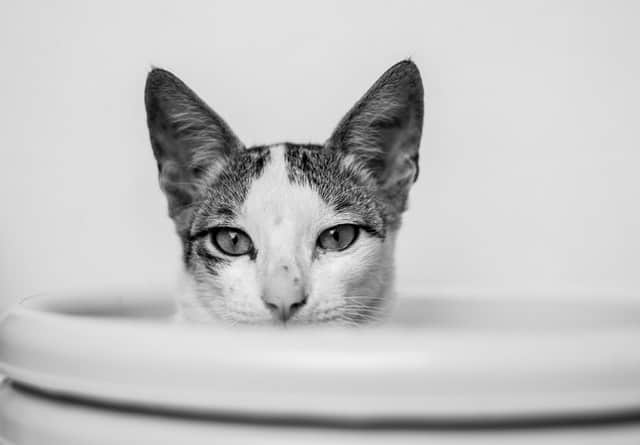
The care and pathologies of the cat’s ears, we learn to take care of them and recognize the symptoms to intervene in time.
Most ear ailments can be treated within twenty-four hours by a veterinarian without further complications. Keeping in mind that cat ear problems are generally due to fights with other cats while the inside of the ears can be attacked by mites causing severe itching, which then generates dermatitis in the cat or lesions.
It is important to be able to understand the presence of certain symptoms that the animal suffers and therefore to be prompt in intervening and solving the problem with the help of a veterinarian.
Symptoms
The pathologies should not be underestimated because they can cause damage to the eardrum and therefore it is important to note the presence of certain clinical signs in the cat, such as the following:
- swollen ear: this may be a sign of an abscess
- if the cat tilts its head: a sign of a middle ear infection
- itchy ears: often caused by mites
- yellow-green discharge: a sign of infection
- scabs on the tips of the ears: insect bites or allergies
- swollen ears: indicate an ongoing allergy
Parasitic otitis
Parasitic otitis in cats is caused by the mite that enters the ear, where it leaves numerous eggs, which then hatch giving life to many parasites, which in turn are responsible for the itching. These small parasites are called “Otodectes Cynotis”, and cause precisely this type of otitis also called otodectic mange or even otoacariasis.
If left untreated, this ear mange can also spread to your cat’s face, increasing the extent of the itch. Parasitic otitis can cause complications, such as secondary bacterial infections, grazes or bruises from scratching, or chronic thickening of the ear mucosa due to inflammation.
Today there are very effective and very simple treatments to eliminate these annoying parasites. There are good products that apply inside the ear canal. The ear mange mite is also contagious to other animals, such as dogs and ferrets, to which treatment should be extended.
These mites are very contagious and easily pass from one cat to another. Kittens acquire parasites from their mother if she is infested; house cats can contract them from other cats they meet outside. This parasite, on the other hand, does not represent any problem for people, for whom it is not contagious.
Another factor to consider is the hereditary problem of keratization, which causes inflammation and seborrhea, giving way to the manifestation of otitis. Feline otitis can also be caused by: food allergy, contact hypersensitivity, immune diseases such as feline AIDS or feline leukemia , nasopharyngeal polyps, feline scabies, seborrheic disorders, metabolic, endocrine and nutritional diseases.
Cat ears care and how to clean them

The ears of the cat, but the ears in general, are very sensitive and delicate organs, for this reason the best solution is to let an expert intervene. The vet will know how to move around to clean or check the inside of the ear, with appropriate tools. Only when the problem should be external dirt, you can intervene with a cotton swab soaked in warm chamomile.
When the vet finds any pathology, it will be necessary to carry out the therapy at home and below are some useful tips to take care of the cat’s ears, these are:
- folding the cat’s outer ear back to facilitate access to the ear canal;
- try to clean the outer ear with the solution recommended by the vet and with the help of cotton, massaging gently;
- repeat the same procedure on the other ear as well;
- after about five minutes use some cotton to clean the ear again from the ear wax that has detached (in the meantime, leave the cat free so it can relax);
- at the end of the therapy always remember to reward the cat with some rewards.
Prevention for the treatment and diseases of the cat’s ears
- Periodically clean your ears, as accumulated ear wax can cause an infection.
- Monitor the animal’s health, trying to thoroughly inspect its ears when you brush or bathe it
- Do not use any kind of drops or cleansers, as cats are very sensitive to chemicals and even natural products.
- Do not use dog medications in cats.
- Dry your ears thoroughly after bathing.






